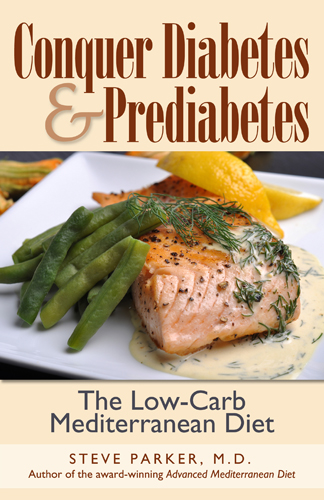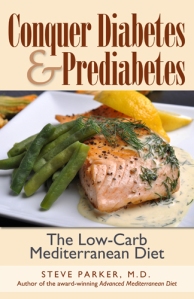1. Record-keeping is often the key to success.
2. Accountability is another key to success. Consider documenting your program and progress on a free website such as FitDay, SparkPeople, 3FatChicks, or others. Consider blogging about your adventure on a free platform such as WordPress or Blogger, or try the newer social media sites. Such a public commitment may be just what you need to keep you motivated.
3. Do you have a friend or spouse who wants to lose weight? Start the same program at the same time and support each other. That’s built-in accountability.
4. If you tend to over-eat, floss and brush your teeth after you’re full. You’ll be less likely to go back for more anytime soon.
5. Eat at least two or three meals daily. Skipping meals may lead to uncontrollable overeating later on. On the other hand, ignore the diet gurus who say you must eat every two or three hours. That’s codswallop.
6. Eat meals at a leisurely pace, chewing and enjoying each bite thoroughly before swallowing.
7. Plan to give yourself a specific reward for every 10 pounds (4.5 kg) of weight lost. You know what you like. Consider a weekend get-away, a trip to the beauty salon, jewelry, an evening at the theater, a professional massage, home entertainment equipment, new clothes, etc.
8. Carefully consider when would be a good time to start your new lifestyle. It should be a period of low or usual stress. Bad times would be Thanksgiving day, Christmas/New Years’ holiday, the first day of a Caribbean cruise, and during a divorce.
9. If you know you’ve eaten enough at a meal to satisfy your nutritional requirements yet you still feel hungry, drink a large glass of water and wait a while.
10 Limit television to a maximum of a few hours a day.
11. Maintain a consistent eating pattern throughout the week and year.
12. Eat breakfast routinely.
13. Control emotional eating.
14. Weigh frequently: daily during active weight-loss efforts and during the first two months of your maintenance-of-weight-loss phase. After that, cut back to weekly weights if you want. Daily weights will remind you how hard you worked to achieve your goal.
15. Be aware that you might regain five or 10 pounds (2-4 kg) of fat now and then. You probably will. Don’t freak out. It’s human nature. You’re not a failure; you’re human. But draw the line and get back on the old weight-loss program for one or two months. Analyze and learn from the episode. Why did it happen? Slipping back into your old ways? Slacking off on exercise? Too many special occasion feasts or cheat days? Allowing junk food or non-essential carbs back into the house?
16. Learn which food item is your nemesis—the food that consistently torpedoes your resolve to eat right. For example, mine is anything sweet. Remember an old ad campaign for a potato chip: “Betcha can’t eat just one!”? Well, I can’t eat just one cookie. So I don’t get started. I might eat one if it’s the last one available. Or I satisfy my sweet craving with a diet soda, small piece of dark chocolate, or sugar-free gelatin. Just as a recovering alcoholic can’t drink any alcohol, perhaps you should totally abstain from…? You know your own personal gastronomic Achilles heel. Or heels. Experiment with various strategies for vanquishing your nemesis.
17. If you’re not losing excess weight as expected (about a pound or half a kilogram per week), you may benefit from eating just two meals a day. This will often turn on your cellular weight-loss machinery even when total calorie consumption doesn’t seem much less than usual. The two meals to eat would be breakfast and a mid-afternoon meal (call it what you wish). The key is to not eat within six hours of bedtime. Of course, this trick could cause dangerous hypoglycemia if you’re taking drugs with potential to cause low blood sugars, like insulin and sulfonylureas. If you take drugs for diabetes, talk to your dietitian or physician before instituting a semi-radical diet change like this.
18. One of the fitness bloggers I used to follow was James Fell. He said, “If you want to lose weight you need to cook. Period.”
19. Regular exercise is much more important for prevention of weight regain rather than for actually losing weight.
Steve Parker, M.D.











